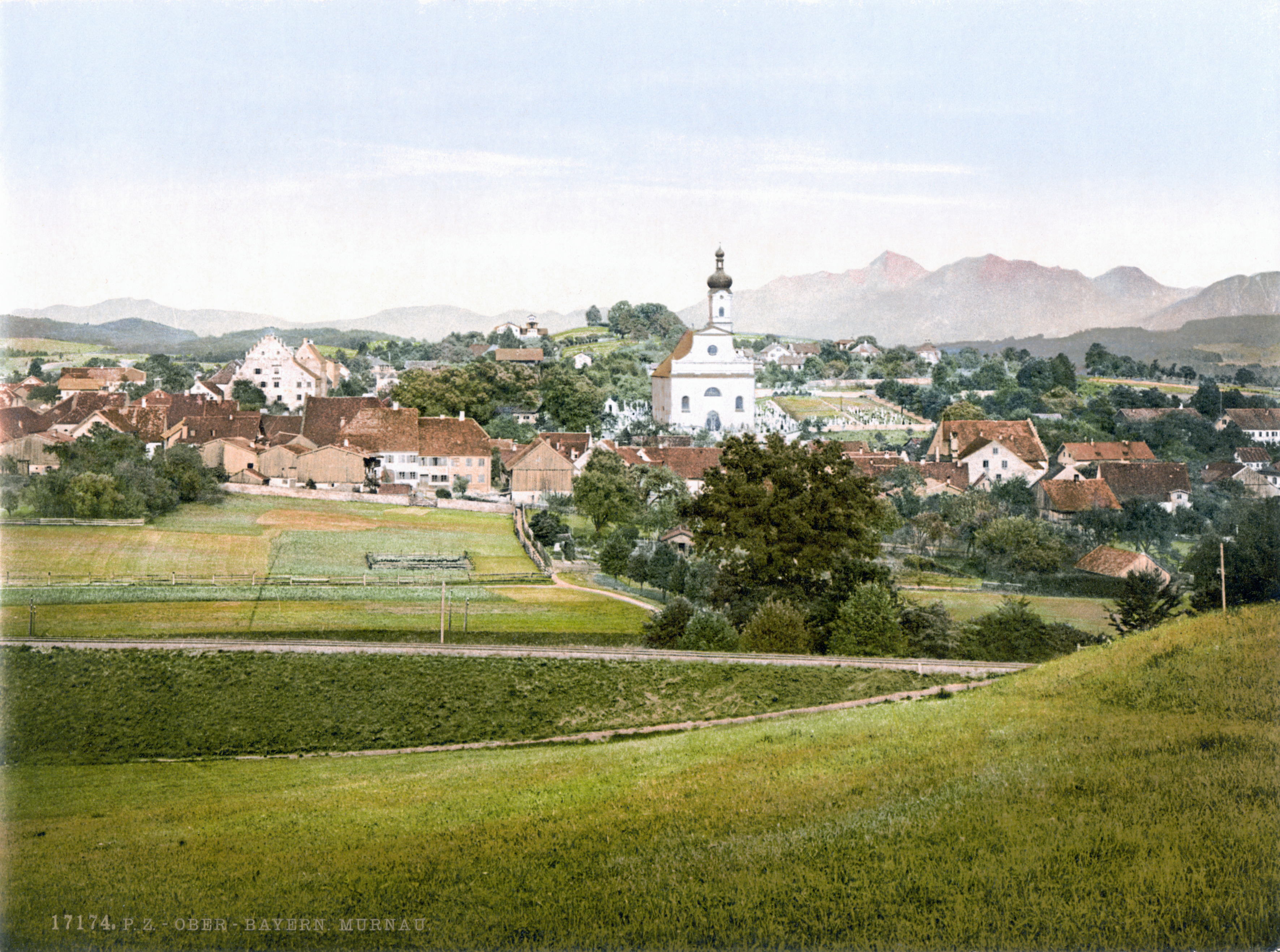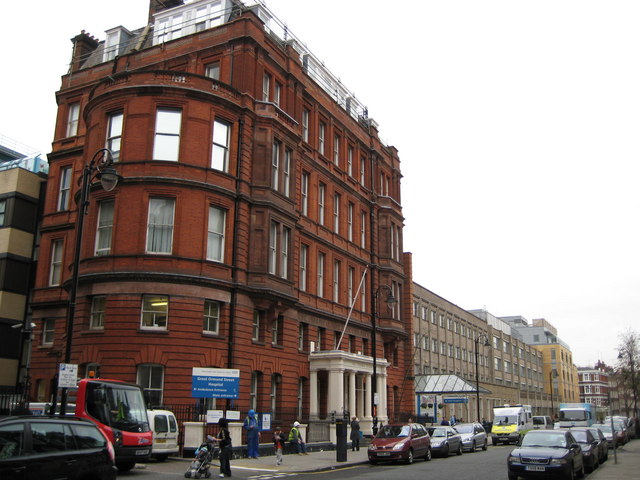|
August Hauner
August Hauner (29 October 1811 – 11 June 1884) was a German pediatrician and founder of the ''Dr. von Haunerschen Kinderspitals'' (Hauner Children's Hospital) in Munich, which today is part of the University of Munich hospital complex.Dr. von Haunerschen Kinderspitals @ German Wikipedia He was born in Neumarkt-Sankt Veit. He studied medicine at the Universities of Munich and Vienna, and in 1837 relocated to Tann, Bavaria as a general practitioner. Later, he performed similar duties in Murnau am Staffelsee. In 1845 he moved to Munich, where he opened a small private hospital for treatment of underprivileged sick children. The original facility had six hospital beds with a busy out-patient clinic. Gradually, over the years, the hospital grew in size and stature. In 1850 he obtained his habilitation at Munich, and began teaching clinical courses in pediatrics. In 1853 he was made an "honorary professor" with no entitlement to a salary. In 1882 a new hospital building was c ... [...More Info...] [...Related Items...] OR: [Wikipedia] [Google] [Baidu] |
Pediatrics
Pediatrics ( also spelled ''paediatrics'' or ''pædiatrics'') is the branch of medicine that involves the medical care of infants, children, adolescents, and young adults. In the United Kingdom, paediatrics covers many of their youth until the age of 18. The American Academy of Pediatrics recommends people seek pediatric care through the age of 21, but some pediatric subspecialists continue to care for adults up to 25. Worldwide age limits of pediatrics have been trending upward year after year. A medical doctor who specializes in this area is known as a pediatrician, or paediatrician. The word ''pediatrics'' and its cognates mean "healer of children," derived from the two Greek words: (''pais'' "child") and (''iatros'' "doctor, healer"). Pediatricians work in clinics, research centers, universities, general hospitals and children's hospitals, including those who practice pediatric subspecialties (e.g. neonatology requires resources available in a NICU). History The ear ... [...More Info...] [...Related Items...] OR: [Wikipedia] [Google] [Baidu] |
German Pediatricians
German(s) may refer to: * Germany (of or related to) **Germania (historical use) * Germans, citizens of Germany, people of German ancestry, or native speakers of the German language ** For citizens of Germany, see also German nationality law **Germanic peoples (Roman times) * German language **any of the Germanic languages * German cuisine, traditional foods of Germany People * German (given name) * German (surname) * Germán, a Spanish name Places * German (parish), Isle of Man * German, Albania, or Gërmej * German, Bulgaria * German, Iran * German, North Macedonia * German, New York, U.S. * Agios Germanos, Greece Other uses * German (mythology), a South Slavic mythological being * Germans (band), a Canadian rock band * "German" (song), a 2019 song by No Money Enterprise * ''The German'', a 2008 short film * "The Germans", an episode of ''Fawlty Towers'' * ''The German'', a nickname for Congolese rebel André Kisase Ngandu See also * Germanic (other) * Ge ... [...More Info...] [...Related Items...] OR: [Wikipedia] [Google] [Baidu] |
People From Mühldorf (district)
A person ( : people) is a being that has certain capacities or attributes such as reason, morality, consciousness or self-consciousness, and being a part of a culturally established form of social relations such as kinship, ownership of property, or legal responsibility. The defining features of personhood and, consequently, what makes a person count as a person, differ widely among cultures and contexts. In addition to the question of personhood, of what makes a being count as a person to begin with, there are further questions about personal identity and self: both about what makes any particular person that particular person instead of another, and about what makes a person at one time the same person as they were or will be at another time despite any intervening changes. The plural form "people" is often used to refer to an entire nation or ethnic group (as in "a people"), and this was the original meaning of the word; it subsequently acquired its use as a plural form of per ... [...More Info...] [...Related Items...] OR: [Wikipedia] [Google] [Baidu] |
1884 Deaths
Events January–March * January 4 – The Fabian Society is founded in London. * January 5 – Gilbert and Sullivan's ''Princess Ida'' premières at the Savoy Theatre, London. * January 18 – Dr. William Price attempts to cremate his dead baby son, Iesu Grist, in Wales. Later tried and acquitted on the grounds that cremation is not contrary to English law, he is thus able to carry out the ceremony (the first in the United Kingdom in modern times) on March 14, setting a legal precedent. * February 1 – ''A New English Dictionary on historical principles, part 1'' (edited by James A. H. Murray), the first fascicle of what will become ''The Oxford English Dictionary'', is published in England. * February 5 – Derby County Football Club is founded in England. * March 13 – The siege of Khartoum, Sudan, begins (ends on January 26, 1885). * March 28 – Prince Leopold, the youngest son and the eighth child of Queen Victoria and Prin ... [...More Info...] [...Related Items...] OR: [Wikipedia] [Google] [Baidu] |
1811 Births
Events January–March * January 8 – An unsuccessful slave revolt is led by Charles Deslondes, in St. Charles and St. James Parishes, Louisiana. * January 17 – Mexican War of Independence – Battle of Calderón Bridge: A heavily outnumbered Spanish force of 6,000 troops defeats nearly 100,000 Mexican revolutionaries. * January 22 – The Casas Revolt begins in San Antonio, Spanish Texas. * February 5 – British Regency: George, Prince of Wales becomes prince regent, because of the perceived insanity of his father, King George III of the United Kingdom. * February 19 – Peninsular War – Battle of the Gebora: An outnumbered French force under Édouard Mortier routs and nearly destroys the Spanish, near Badajoz, Spain. * March 1 – Citadel Massacre in Cairo: Egyptian ruler Muhammad Ali kills the last Mamluk leaders. * March 5 – Peninsular War – Battle of Barrosa: A French attack fails, on a larger Anglo-Portuguese-Sp ... [...More Info...] [...Related Items...] OR: [Wikipedia] [Google] [Baidu] |
Allgemeine Deutsche Biographie
''Allgemeine Deutsche Biographie'' (ADB, german: Universal German Biography) is one of the most important and comprehensive biographical reference works in the German language. It was published by the Historical Commission of the Bavarian Academy of Sciences between 1875 and 1912 in 56 volumes, printed in Leipzig by Duncker & Humblot. The ADB contains biographies of about 26,500 people who died before 1900 and lived in the German language Sprachraum of their time, including people from the Netherlands before 1648. Its successor, the '' Neue Deutsche Biographie'', was started in 1953 and is planned to be finished in 2023. The index and full-text articles of ADB and NDB are freely available online via the website ''German Biography'' (''Deutsche Biographie''). Notes References * * External links * ''Allgemeine Deutsche Biographie'' - full-text articles at German Wikisource Wikisource is an online digital library of free-content textual sources on a wiki, operated b ... [...More Info...] [...Related Items...] OR: [Wikipedia] [Google] [Baidu] |
Physical Education
Physical education, often abbreviated to Phys Ed. or P.E., is a subject taught in schools around the world. It is usually taught during primary and secondary education, and encourages psychomotor learning by using a play and movement exploration setting to promote health and physical fitness. Activities in P.E. include football, netball, hockey, rounders, cricket, four square, racing, and numerous other children's games. Physical education also teaches nutrition, healthy habits, and individuality of needs. Physical education programs vary all over the world. When taught correctly, P.E. class can produce positive effects on students' health, behavior, and academic performance. As part of this, health education is the teaching of information on the prevention, control, and treatment of diseases. It is taught with physical education, or P.H.E. for short. Pedagogy The main goals in teaching modern physical education are: * To expose children and teens to a wide variety of exerc ... [...More Info...] [...Related Items...] OR: [Wikipedia] [Google] [Baidu] |
Lindwurmstraße
The Lindwurmstraße is a 2.4-kilometer poplar alley in the Munich districts Ludwigsvorstadt-Isarvorstadt and Sendling. Location and Route The Lindwurmstraße runs one kilometer to the northwest, parallel to the Isar and mostly just at an altitude of about 520 m above sea level from the ''Sendlinger Tor'' in a southwesterly direction. Between Poccistraße and Implerstraße, it passes under the ''Münchner Südring'', a railway line that connects '' Bahnhof München Ost'' with '' München Hauptbahnhof'' and the Laim shunting yard to the south of the city center. Only shortly before its southern end in Munich-Sendling, it rises to the Pfeuferstraße at 534 m above sea level. Well-known occupants are, umong others, the ''Klinikum Großhadern'', the '' Haunersche Kinderspital'' as well as the churches St. Matthäus and St. Margaret. History The Bavarian archival cadaster shows the Lindwurmstraße in the 1810s as a then, nameless Chaussee, that leads past the ''Burgfriedstein N ... [...More Info...] [...Related Items...] OR: [Wikipedia] [Google] [Baidu] |
Murnau Am Staffelsee
Murnau am Staffelsee is a market town in the district of Garmisch-Partenkirchen, in the Oberbayern region of Bavaria, Germany. The market originated in the 12th century around Murnau Castle. Murnau is on the edge of the Bavarian Alps, about south of Munich. Directly to its west is the Staffelsee lake and to the south are the peaks and ridges of the Ammergau Alps beginning with the Hörnle and extending up to the Ettaler Manndl, southwest of the Wetterstein. This mountain range is formed by the Zugspitze and the Alpspitze in the south as well as the Estergebirge with their striking Kistenkar and the Walchensee mountains including Heimgarten and Herzogstand in the southeast. To the south, the Murnauer Moos is the largest continuous wetland of its kind in Central Europe. History The area around Murnau was already settled in pre-Christian times. From the reign of Septimius Severus, a Roman road called Via Raetia led above the Brenner Pass and Seefeld Saddle through the upper Isar- ... [...More Info...] [...Related Items...] OR: [Wikipedia] [Google] [Baidu] |
Pediatrician
Pediatrics ( also spelled ''paediatrics'' or ''pædiatrics'') is the branch of medicine that involves the medical care of infants, children, adolescents, and young adults. In the United Kingdom, paediatrics covers many of their youth until the age of 18. The American Academy of Pediatrics recommends people seek pediatric care through the age of 21, but some pediatric subspecialists continue to care for adults up to 25. Worldwide age limits of pediatrics have been trending upward year after year. A medical doctor who specializes in this area is known as a pediatrician, or paediatrician. The word ''pediatrics'' and its cognates mean "healer of children," derived from the two Greek words: (''pais'' "child") and (''iatros'' "doctor, healer"). Pediatricians work in clinics, research centers, universities, general hospitals and children's hospitals, including those who practice pediatric subspecialties (e.g. neonatology requires resources available in a NICU). History The earlie ... [...More Info...] [...Related Items...] OR: [Wikipedia] [Google] [Baidu] |


_1938.jpg)





